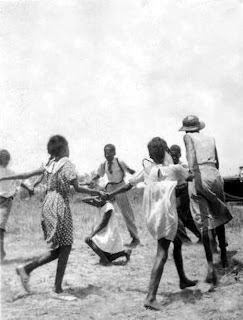Stephen Gavazzi, co-author of the study and professor of human development and family science at Ohio State University.
"If you look at most studies involving internalizing and externalizing among youth, they generally look at white, middle-class samples," Gavazzi said.
"Most research has not paid attention to race. And when studies do look at race, they are not likely to look at family and gender as well."
In this study, the results showed that Black girls and boys showed similar levels of externalizing and internalizing behavior, once family dysfunction was taken into account. In these families, boys and girls were more likely to show outward aggression if they lived in families with higher levels of dysfunction. Such a relationship was not found in white families.
"Family issues affect children in African-American families differently than they do in white families," Gavazzi said. "That is something that really hasn't been found before."
This study, published in the July 2008 issue of the Journal of Marital and Family Therapy, involved 2,549 youth who appeared before a juvenile court in five counties in Ohio.
The youth were assessed using a measure developed by Gavazzi and his colleagues called the Global Risk Assessment Device (GRAD). The measure is an internet-based assessment tool that asks youth a variety of questions to determine the risks they face for further problems in life.
GRAD asks about prior brushes with the law, family and parenting issues, substance abuse, traumatic events and a variety of other issues. For example, GRAD asks how often they get into fights with adults in their homes, if they have friends who have been in trouble with the law, and how much trouble they have in controlling their anger.
Gavazzi said it is not surprising that family issues affect African-American children differently than they do white children.
"Researchers who study ethnicity and culture have long noted the primacy of family for African Americans," he said. "That's telling us that families matter in a different way for African-American youth than what we're finding for whites."
Gavazzi said he and his colleagues are now trying to identify exactly what is different in African-American families that affects whether youth internalize or externalize problems, and how to best help them.
They are looking, for example, at issues such as family conflict and the amount of monitoring parents do of their children.
"We want to find out if there is some different constellation of things happening in African-American families that can explain some of our findings," he said. ###
Gavazzi conducted the study with Jennifer Bostic, program manager at the OSU Center for Family Research; Ji-Young Lim, assistant professor at Miami University of Ohio; and Courtney Yarcheck, program director of the OSU Center for Family Research.
Contact: Stephen Gavazzi, (614) 292-5620; Gavazzi.1@osu.edu, Written by Jeff Grabmeier, (614) 292-8457; Grabmeier.1@osu.edu, WEB: Ohio State University
The Peace Fountain
7 years ago
















No comments:
Post a Comment